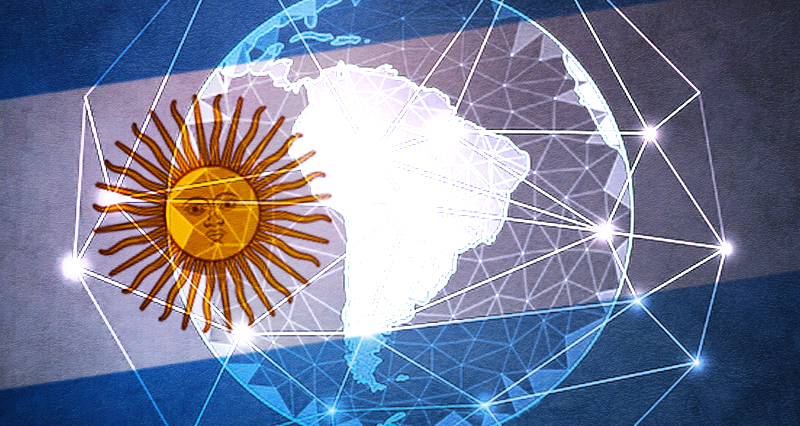By Rodolfo Pablo Treber *
In recent days, Brazil’s presidential candidate, Luiz Inácio Lula da Silva, defended the creation of a single currency in Latin America as a tool to expand relations between the countries of the region and break dependence on the US dollar.
This old, but still valid idea emerges to the public debate in an opportune geopolitical scenario of loss of hegemony of the US currency.
In the current context of a clear transition towards multipolarity, it is convenient and necessary for the countries of our America, dominated and deliberately underdeveloped, to move towards monetary and financial unity in order to position themselves strongly before the new world order in gestation, and not to perpetuate the dependent nature of their economies.
However, it is worth noting that unity should be in view of a planned common industrial development and not only in the strictly financial and monetary sphere since, in this way, the only beneficiaries would be the countries with better pre-existing conditions of development, generating new relations of domination and dependence as it happened, and is happening, in the experience of the European Union.
In this sense, the “SUR” currency should be used for trade relations among the countries of our America with the objective of self-financing the necessary regional industrial integration plans. In order not to fall into the volatility and uncertainty, typical of undeveloped economies’ currencies, its issuing backing should be based on the production of the member countries (raw materials and main tradable goods). In this way, the value of the currency would be tied to production, to labor, and not to financial market speculation. On the other hand, the exchange relationship with national currencies should be managed with a floating exchange rate, based on the prices of the production used as backing, in order to avoid competition among member countries.
The currency and a South American central bank would be powerful tools if they are to enhance the complementarity of the economies of the region.
If we allow ourselves to peek into the future through a crack different from those that command us, we can see, and imagine, the enormous potential of a united Patria Grande. The complementary nature of its economies and its natural resources functioning together open up the possibility of an explosive development for its people. Everything that today, separated, weakens us for the benefit of the oppressor, united, strengthens and liberates us.
Uniting state-owned enterprises like YPF, PETROBRAS, PEMEX, PDVSA and YPFB within a regional strategy
By way of example, if YPF, PETROBRAS, PEMEX, ANCAP, PDVSA, YPFB and other state-owned oil companies united in the same regional strategy, their power and production diversity will be boosted to the first world level. By industrially planning the supply of their inputs, they would add technical and industrial value to their primary production. The same scale factor could be achieved for the production of food, gas, lithium, and other strategic sectors.
A single economic nation, with complementary capacities between countries, where Argentina can fulfill the industrial-industrializing role, if it recovers the successful tradition of its state-owned companies as a replicating model for its sister people. Self-sufficiency in health and education (Cuba), feeding itself from the humid pampas and cultivable surfaces added to its extensive maritime platform, with more than a century of abundant oil ahead (Venezuela), blessed with the largest fresh water aquifer on the planet (Paraguay, Brazil, Argentina), the greatest ecological diversity in the world and huge deposits of strategic minerals (Bolivia, Peru, Chile, Brazil, Argentina), would be enough to lay the foundations for a prosperous and sovereign future in the region.
The most that the United States, and its global capitalism, is capable of giving is what we have and what is not enough for everyone: the private businessman aligned to multinationals, the welfare system replacing labor, the consumerism of the middle classes living together with extreme inequality and hunger in lands of abundance. And nothing else.
So far, any political action that questioned those limits established for this part of the world was considered and treated as anachronistic, violent, antidemocratic or terrorist. As it happened with Fidel in Cuba, Subcomandante Marcos in Mexico, Ortega in Nicaragua, Zelaya in Honduras, Chavez in Venezuela, Evo in Bolivia and Lula in Brazil.
But the world is changing. The geopolitical context presents us with a new opportunity to encourage us to undertake a project of political sovereignty, economic independence and social justice. Our Patria Grande, because of its abundance of resources and possibilities, is better off with endogenous and associated industrial development, instead of competition and global markets. The path of autonomous growth cannot be that of the International Monetary Fund, the World Bank, the World Trade Organization, all imperialist institutions, coup plotters and murderers of our Peoples.
We have to seek our own path in order to build a different future.
* Rodolfo Pablo Treber is an economic analyst who works for the Central Bank of Argentina. He is also political secretary of the group Social 21 La Tendencia and a collaborator of PIA Global.

















Leave a Reply